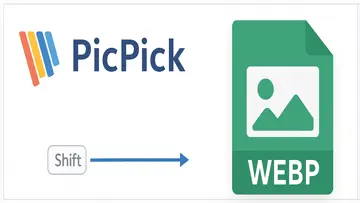Microsoft Apps for Business - en-gb: An In-Depth Analysis
Microsoft Apps for Business provides a comprehensive suite of productivity tools designed to facilitate collaboration and enhance organizational efficiency within enterprise environments. This review examines its core features, usability, integration capabilities, security measures, and overall value, providing an objective perspective on its role in the modern workplace.
Core Features and Functionality
The suite includes essential applications such as Word, Excel, PowerPoint, Outlook, Teams, and OneDrive. Each tool is optimized for business use, offering advanced functionalities tailored to organizational needs. For example, Microsoft Word for Business enables document co-authoring with real-time editing and version history tracking. Excel encompasses data analysis tools like Power Query and Power Pivot, supporting complex datasets. PowerPoint offers collaborative presentation editing with integrated feedback options.
Outlook facilitates professional email management alongside integrated calendar scheduling features that streamline meeting setups. Teams serves as a unified platform for chat, video conferencing, file sharing, and project collaboration. OneDrive for Business ensures secure cloud storage with granular sharing controls and synchronization across devices.
User Experience and Interface
The user interface across Microsoft Apps for Business adheres to modern design principles, emphasizing simplicity and ease of navigation. The ribbon-based layout familiar to long-term users of Microsoft Office products reduces the learning curve. Cloud integration allows seamless access from desktop and mobile devices, with consistent user experience regardless of platform.
Integration and Compatibility
A significant advantage of Microsoft Apps for Business is its compatibility with various third-party applications and services. Integration with tools such as Salesforce, Adobe Sign, and Trello enhances workflow automation. The suite supports open standards like REST APIs, enabling custom integrations tailored to organizational processes.
Moreover, it aligns with Microsoft 365 and Azure Active Directory for streamlined identity management and single sign-on capabilities. This integration simplifies user provisioning and enhances security posture.
Security and Compliance
Security features include data encryption at rest and in transit, multi-factor authentication (MFA), and role-based access controls. Compliance standards such as GDPR, ISO 27001, and SOC reporting are met or exceeded by Microsoft Apps for Business, making it suitable for regulated industries.
The platform offers advanced threat protection mechanisms like Safe Attachments and Safe Links in Outlook/Exchange to prevent phishing attacks. Data loss prevention (DLP) policies provide further control over sensitive information sharing within the organization.
Administrative Control and Management
Administrators benefit from centralized management consoles that facilitate user provisioning, license assignment, and policy enforcement. The Microsoft Endpoint Manager integration allows device management across multiple platforms. Automated reporting features assist in understanding usage patterns and compliance status.
Pricing Structure
The pricing model for Microsoft Apps for Business varies based on subscription tiers. The plans are typically offered on a per-user monthly basis with options for annual commitments. Bulk licensing discounts are available for larger organizations. The cost includes access to all core applications, regular updates, and enterprise-grade support services.
Conclusion
Microsoft Apps for Business delivers a robust productivity suite that caters to the needs of enterprises seeking integrated communication, collaboration tools, data management capabilities, and strong security measures. Its compatibility within the broader Microsoft ecosystem maximizes operational efficiency while maintaining compliance with industry standards. Although the subscription pricing may be considerable for small organizations, the value proposition becomes apparent for medium to large enterprises aiming for scalable digital transformation solutions.
개요
Microsoft 365 Apps for Business 범주 비즈니스 Microsoft개발한에서 상업용 소프트웨어입니다.
클라이언트 응용 프로그램 UpdateStar의 사용자는 지난 한 달 동안 Microsoft 365 Apps for Business 업데이트 2,388를 확인했습니다.
Microsoft 365 Apps for Business의 최신 버전은 2025-06-29에 발표 된 16.0.18925.20064. 처음 2017-01-19에 데이터베이스에 추가 되었습니다. 가장 널리 퍼진 버전은 16.0.18827.20164 47%의 모든 설치는 데 사용 되는.
다음 운영 체제에서 실행 되는 Microsoft 365 Apps for Business: Windows.
Microsoft 365 Apps for Business 사용자 5 5 등급으로 평가 했다.
설치
최신 리뷰
|
|
KMPlayer
Windows 및 Mac을 위한 강력한 멀티미디어 플레이어 |
|
|
Windows PC Health Check
Windows PC 상태 검사로 PC를 원활하게 실행하십시오! |
|
|
SAMSUNG USB Driver for Mobile Phones
삼성 휴대폰을 위한 효율적인 연결 솔루션 |
|
|
Epic Games Launcher
Epic Games Launcher로 Epic Games의 힘을 발휘하십시오 |
|
|
WPS Office
WPS Office: 모든 요구 사항을 충족하는 다용도 오피스 제품군 |
|
|
Adobe Photoshop
최고의 사진 편집 소프트웨어: 어도비 포토샵 리뷰 |
|
|
UpdateStar Premium Edition
UpdateStar Premium Edition으로 소프트웨어를 최신 상태로 유지하는 것이 그 어느 때보다 쉬워졌습니다! |
|
|
Microsoft Edge
웹 브라우징의 새로운 표준 |
|
|
Microsoft Visual C++ 2015 Redistributable Package
Microsoft Visual C++ 2015 재배포 가능 패키지로 시스템 성능을 향상시키십시오! |
|
|
Google Chrome
빠르고 다재다능한 웹 브라우저 |
|
|
Microsoft Visual C++ 2010 Redistributable
Visual C++ 응용 프로그램 실행을 위한 필수 구성 요소 |
|
|
Microsoft Update Health Tools
Microsoft Update Health Tools: 시스템을 항상 최신 상태로 유지하세요! |





